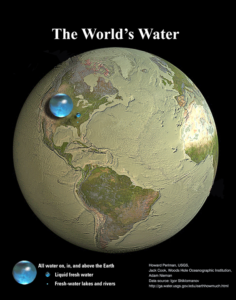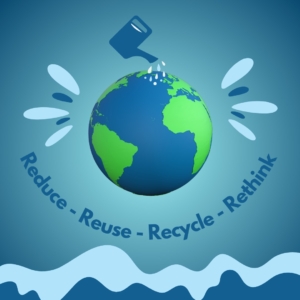Conserving Water: Challenge of the 21st Century
Only 0.5% of the world’s water is available as freshwater for our consumption. This same freshwater is affected by pollution, climate change and excessive use
The water resources of our planet essentially consist of freshwater and saltwater. Together, these waters cover around 71% of the earth’s surface. However, the freshwater that we consume and use every day is very scarce, representing only 0.5 % of all the freshwater on the planet.
This natural resource is available in lakes, rivers, and reservoirs, but also underground, where groundwater accumulates. Despite its scarcity, freshwater supports life on earth and our daily activities. Freshwater is used, for example, for agriculture and food production, to keep our bodies hydrated and healthy, for cooking and preparing food, for daily hygiene, for industrial activities, and for the production of most of the products we use today.
Several countries worldwide are increasingly suffering from climate change, including droughts. Addressing water scarcity implies rethinking our usage of freshwater resources.

The responsible consumption of the water we use in our daily lives is of great importance. If we contribute by reducing the amount of water that we waste, we could help maintain its availability.
Freshwater is essential for life, therefore it must be preserved and protected from contamination, and used in a sustainable way following the principles of the 4 Rs: rethink and reduce its consumption whenever possible, promote its recycling and reuse.

1. Rethink: consider which type of water is needed, what for, where, and how. E.g. capturing rainwater for watering house plants or washing floors.
2. Reduce: actions such as taking short showers, turning off the tap while soaping our hands or brushing our teeth, and decreasing the water flow while washing kitchen tools.
3. Reuse: At our homes, we can utilize kitchen or washing water to irrigate plants or clean certain areas of our homes.
4. Recycle: treated wastewater can be used for washing or irrigation.
By adopting these practices, we can collectively reduce unnecessary consumption of freshwater, and liters of water can be saved in our daily lives.
The challenge for individuals now is to modify our habits and adapt to a lifestyle where water consumption and conservation are of vital importance. Similarly, governments must implement policies and regulations that promote water reclamation and reuse.


